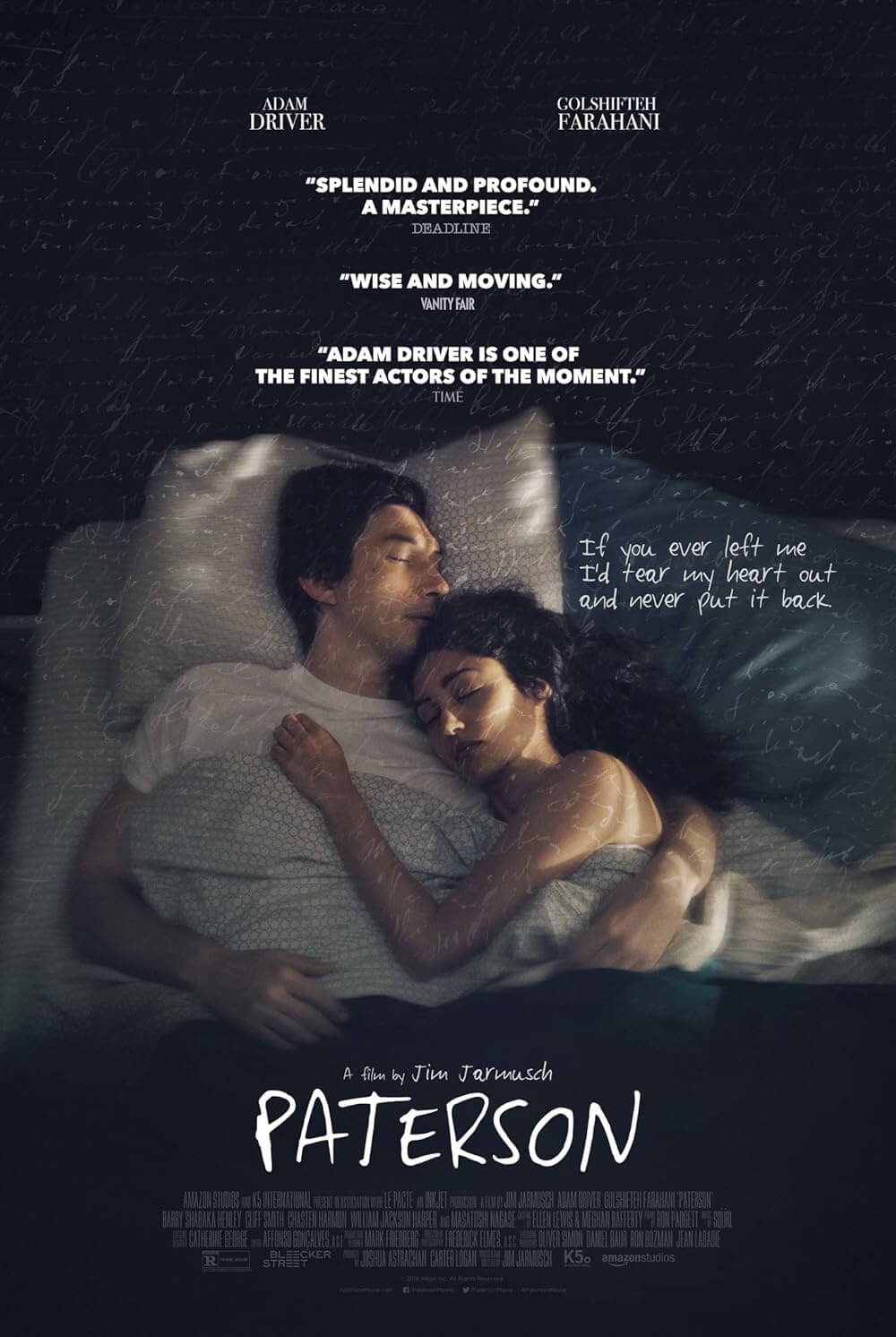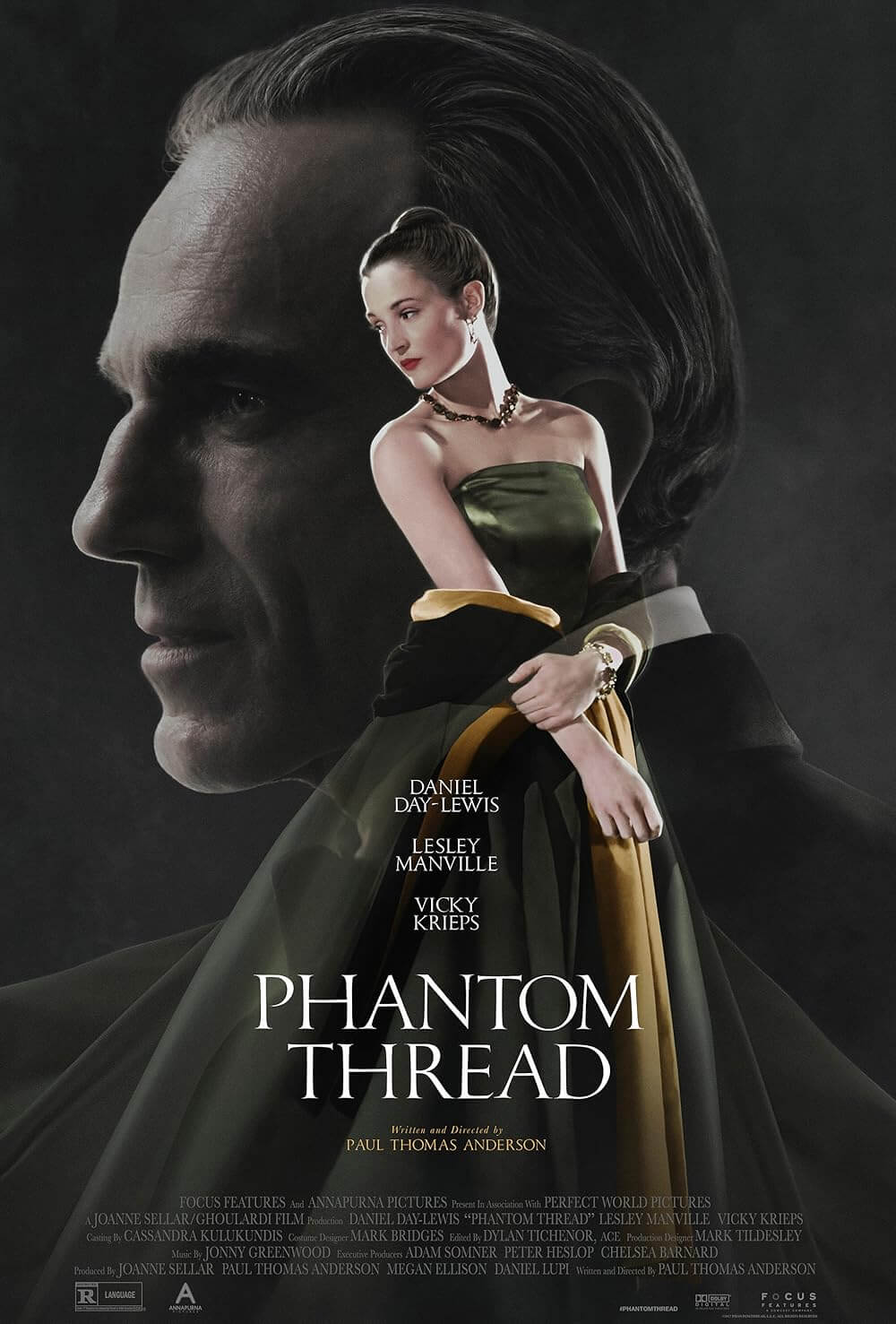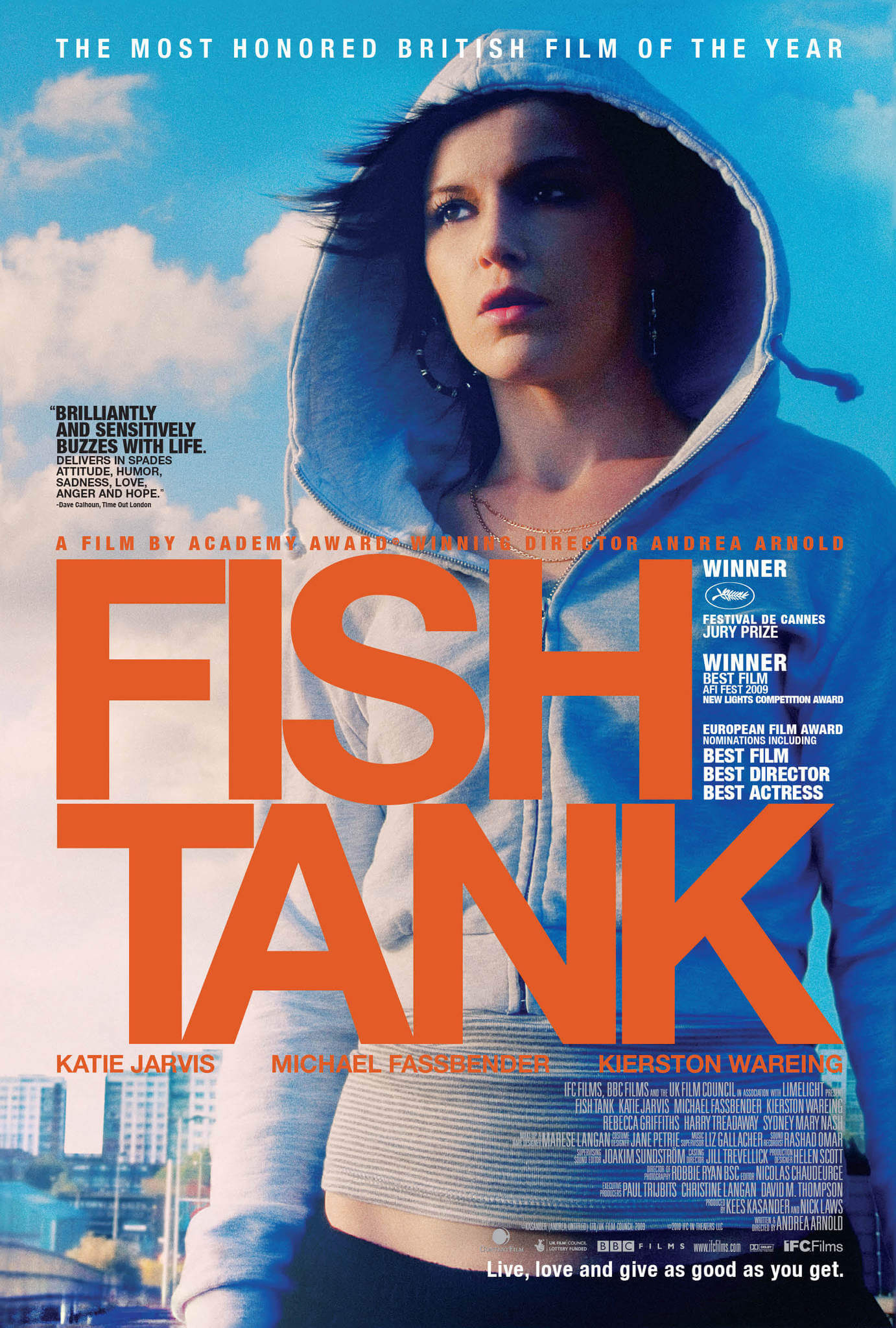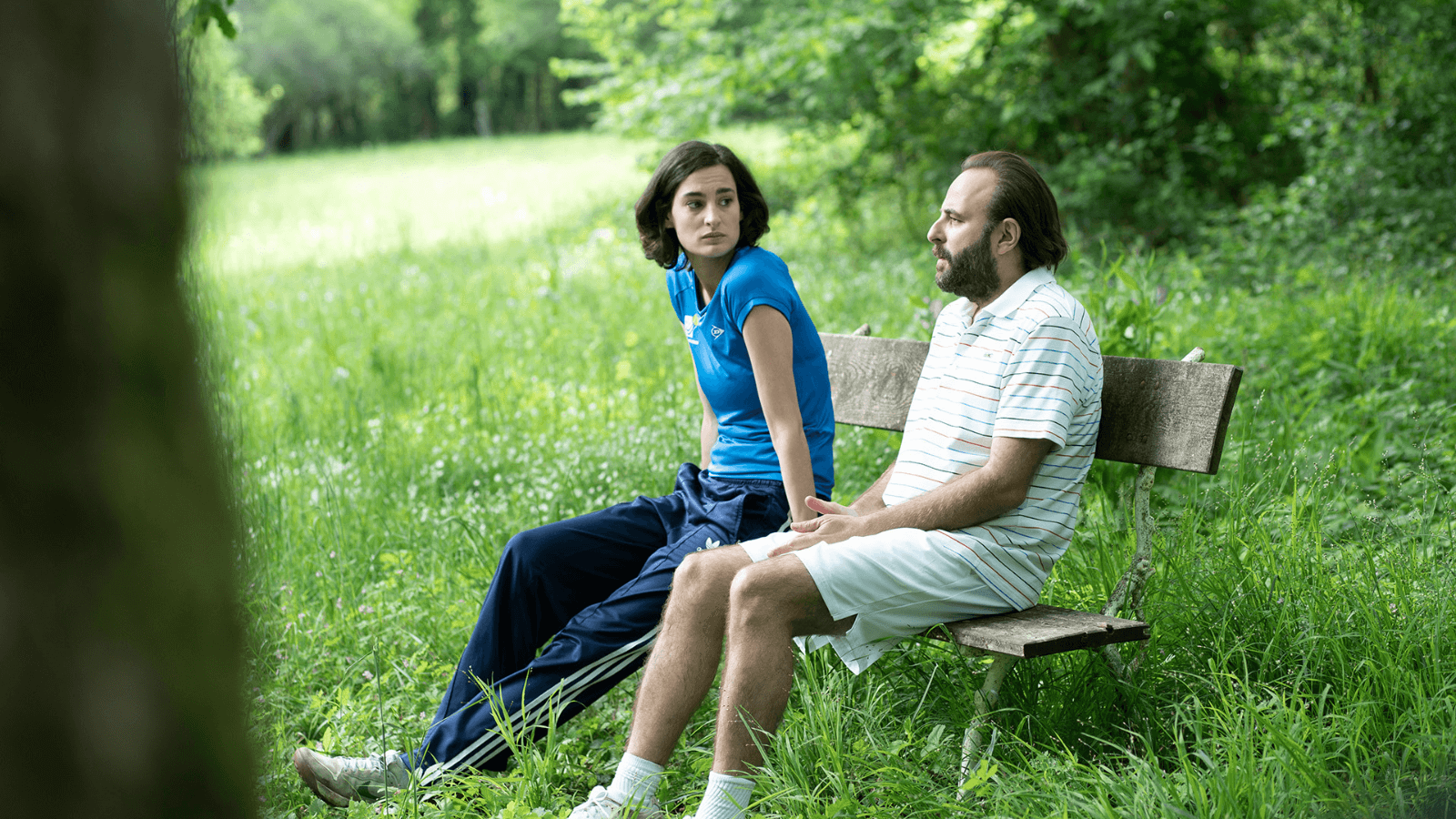
Suspended Time
By Brian Eggert |
Note: Music Box Films will release Suspended Time in New York theaters on August 15, 2025. It will expand to other territories throughout the month.
In Suspended Time, Olivier Assayas ruminates on his experience during the pandemic lockdown. Set in the uncertain days of May 2020, the writer-director’s most autobiographical film yet takes place around the Assayas family home in the French countryside. Fields of blooming spring flowers surround the Art Nouveau structure, the filmmaker’s actual family home, nestled amid forests, meadows, and a pond. There, his onscreen counterpart, named Paul, played by a terrific Vincent Macaigne from Assayas’ Non-Fiction (2018) and miniseries Irma Vep (2022), lives out Assayas’ experience. Through Paul, the filmmaker explores his own neuroses in comic scenes of justified paranoia and close-quarters squabbling. With the wandering mind of someone whose life has been put on hold, Paul, and therein Assayas, considers matters of family, time, and artistic expression in a manner recalling some of the French auteur’s best, most chatty work—in that respect, Suspended Time feels like a companion piece to Summer Hours (2008). It’s a film about a “miraculous time-out” that coincided with COVID-19, which, despite some people’s unraveling from the experience, allowed others to take stock of their lives.
Some of Assayas’ best work unfolds against the backdrop of a specific historical time and place. For instance, Something in the Air (2012) followed a group of young radicals who weighed their futures in the wake of the May ’68 protests, whereas his earlier film, Irma Vep (1996), assessed the French film industry at a time of transition. For Suspended Time, Assayas’ choice of setting it in May 2020 is not designed to be topical or to remark generally on how society reacted at the time. Instead, his treatment is personal. The director lends not only his family’s home but his voiceover and images from his family’s past, from their Hungarian roots to one family member’s lack of foresight when it comes to working with famous artists. Paul’s documentarian girlfriend, Morgane (Nina d’Urso), is quarantining with him, along with Paul’s brother, Etienne (Micha Lescot), and Etienne’s girlfriend, Carole (Nora Hamzawi). But during his weekly online sessions with a shrink, Paul calls the house “too loaded, too dense” with baggage—ranging from memories to reevaluated perspectives about his childhood—to fully relax. The pandemic certainly doesn’t help.
Unlike another recent film about May 2020—Ari Aster’s Eddington—Assayas doesn’t exploit lingering ideological anxieties from the pandemic to the point of maddening frustration. Rather, the director finds humor in Paul’s fastidious behavior. His compulsive buying from Amazon aggravates Etienne, but then so does the absurdity of Paul ordering a sauce pot from a Swedish website for 90 euros only to ruin it upon first use. There’s some conflict and humor surrounding Paul’s “hysterical” adherence to safety protocols, such as watching a video about properly washing his hands while he properly washes his hands. Paul will order from the grocery store; however, he says, “I’m not psychologically ready for the bakery.” Etienne isn’t immune either; he obsessively makes crepes. Like many frustrated people, Etienne plans to do what he wants, when he wants, after the lockdown—an overcompensating response. He considers the lockdown an “attack” on his freedom, and he will flaunt that freedom later.
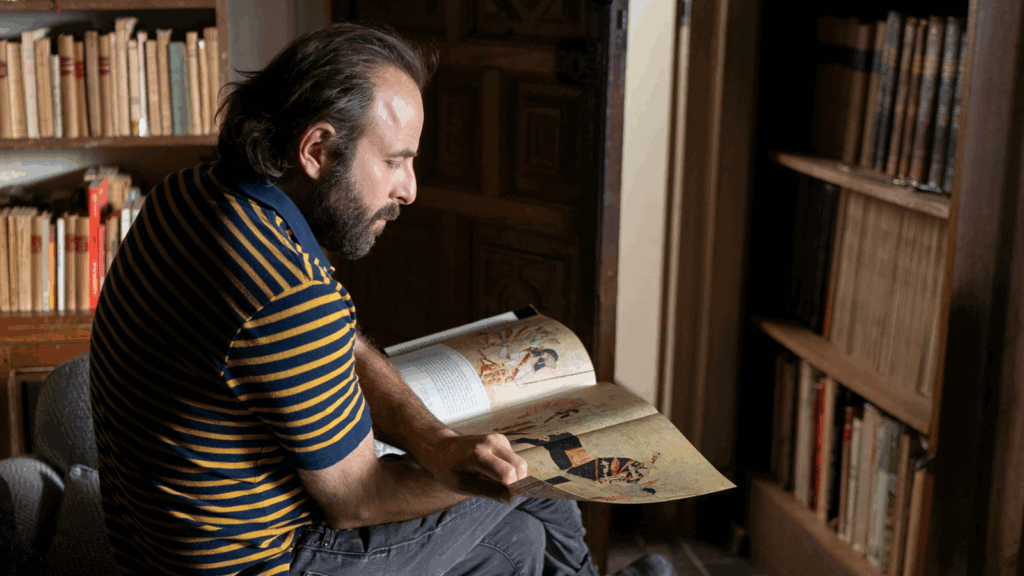
Paul and Etienne’s differences aside, they also have much in common. Both started as journalists in their respective fields, film and music, only to later become a filmmaker and musician, respectively. Both were married with children, and both divorced and currently have younger girlfriends. Confined to the family house, the two couples also talk music, play games, watch films, and worry about the future. For Paul, the surroundings bring back memories of childhood. His father’s color-coordinated library hasn’t changed, and he still considers his mother’s former bedroom her room. The brothers spent much of their childhood in this place, and the lockdown forces a strange pause that requires them to halt forward momentum and examine the past. It gives Paul the time to examine how he got here. Should he keep making films? How will the pandemic change the marketplace for filmmakers and filmgoers? Paul thinks a new form of cinema is in order.
Assayas also mines Paul’s existential crisis with a series of black-and-white passages that reveal glimpses of the director’s memories from his childhood in the house. These sequences, edited by Marion Monnier with a speed that mimics memory itself, dabble in the same ethereal state as the loose narrative structure. Suspended Time exists within the same ambiguous temporality as an impressionistic painting. Indeed, cinematographer Éric Gautier captures how the sunny light peers through windows and highlights the lush fields surrounding the house, lending a familiar look to Pierre-Auguste Renoir’s impressionist outdoor paintings. Assayas even plays an audio portion of a 1958 interview with the painter’s son, filmmaker Jean Renoir (Grand Illusion, 1937), who remembers his ailing, aged father still coming alive when presented with paints and a canvas. Assayas ponders in his narration why painting evokes Nature so well, whereas cinema’s relationship with Nature remains on shaky terms. After all, few productions today spend the money to search for the perfect image or ideal light. Many movies rely on CGI to fabricate the perfect sunset or a picturesque background because their filmmakers don’t allow time to discover or capture Nature’s beauty on film.
By contrast, Assayas’ film is exquisitely detailed and patiently told. Above all, I found Suspended Time achingly relatable in Assayas’ (and Paul’s) remarks about the extended lockdown. “It felt like a utopia,” he remarks, “and that utopia had to end.” It was a time of great quiet—both literal and figurative—and inward reflection. Fewer social obligations and less general noise presented a reprieve, even while leaving many in a void—especially for those who adhered to quarantine protocols. It was a time to assess one’s life and priorities, even while feeling “terrified” (Paul’s word) about the future. Through his autofictional onscreen characters, Assayas uses naturalistic dialogue and performances to evoke complex feelings about a strange time that both presented remedies to a fast-paced lifestyle and despair. Paul remarks, “Right now, nothing gives me hope.” At the very least, Assayas found a way to work again, and he delivers another memorable, quiet, oddly welcoming, and insightful film.
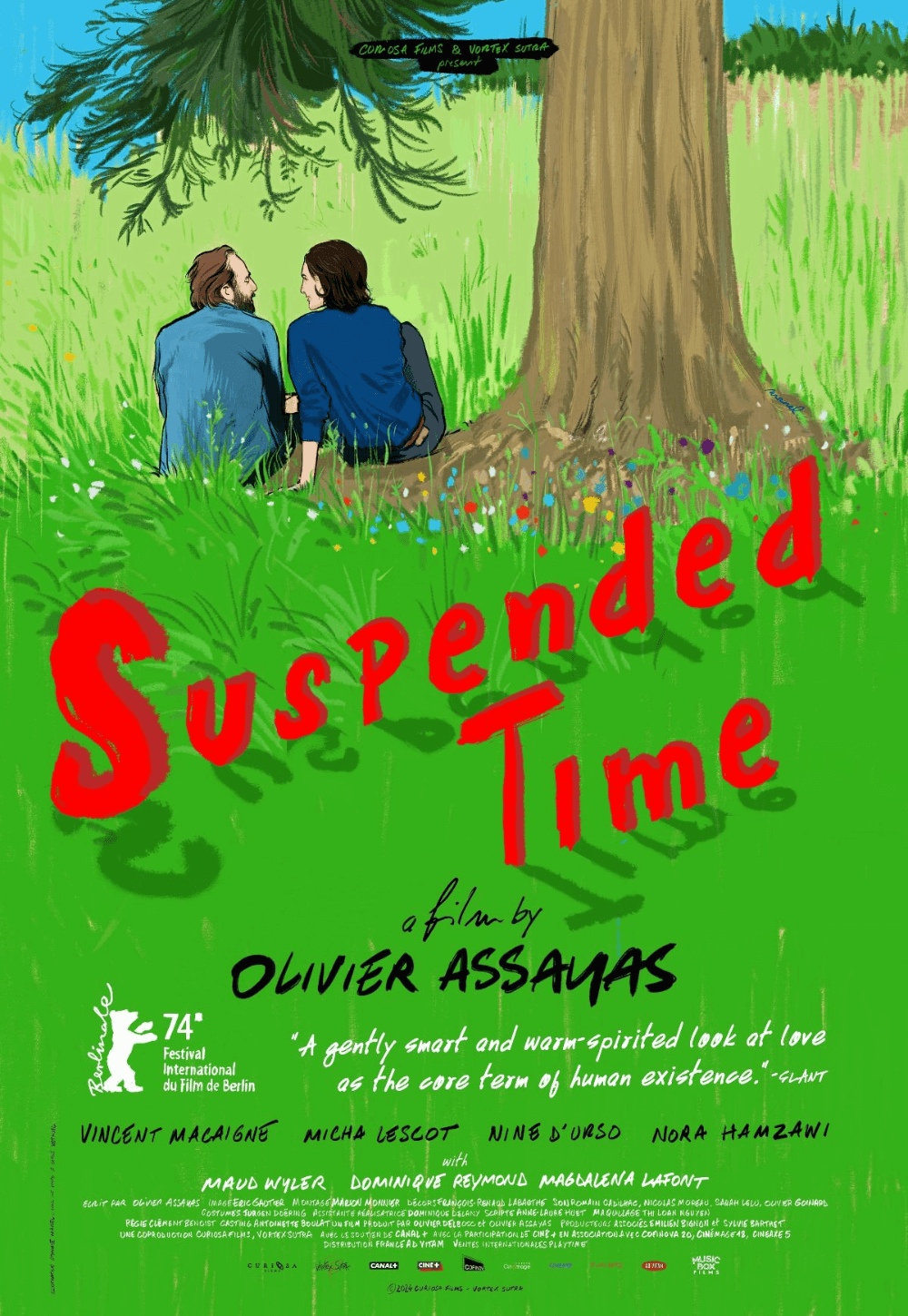
Thank You for Supporting Independent Film Criticism
If the work on DFR has added something meaningful to your love of movies, please consider supporting it.
Here are a few ways to show your support: make a one-time donation, join DFR’s Patreon for access to exclusive writing, or show your support in other ways.
Your contribution helps keep this site running independently. However you choose to support the site, please know that it’s appreciated.
Thank you for reading, and for making this work possible.
Brian Eggert | Critic, Founder
Deep Focus Review


